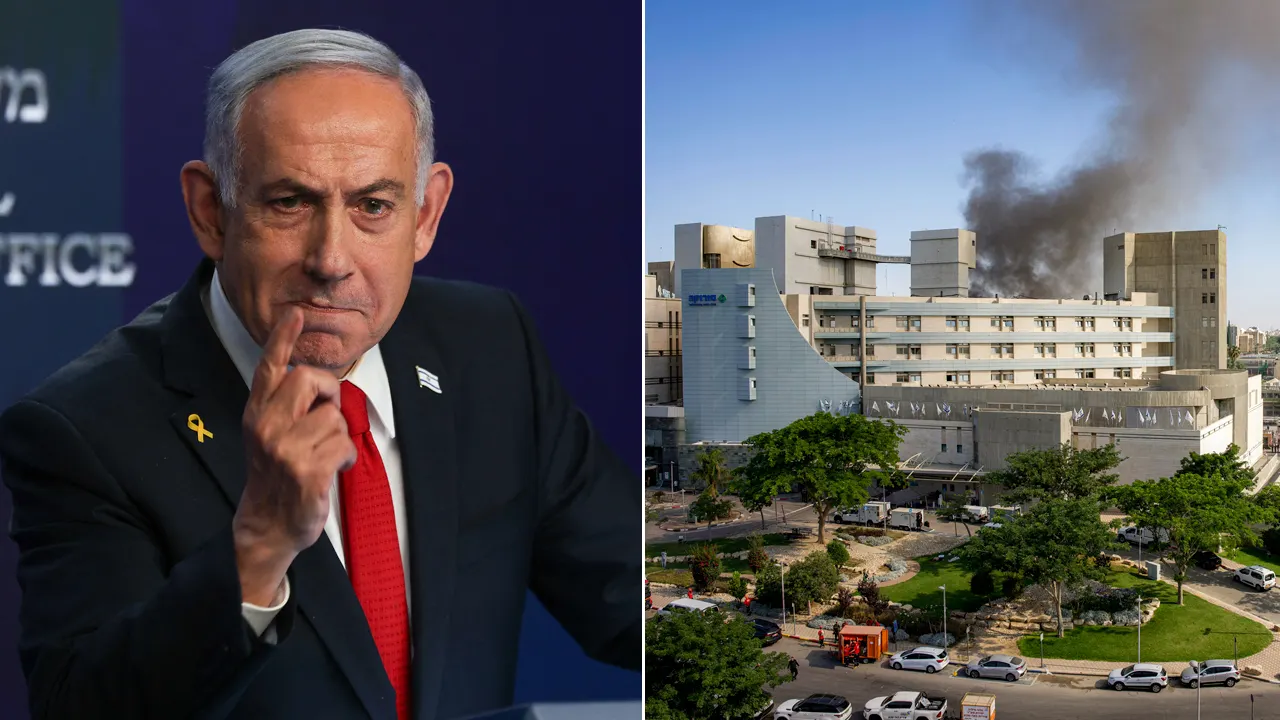BBC World Service
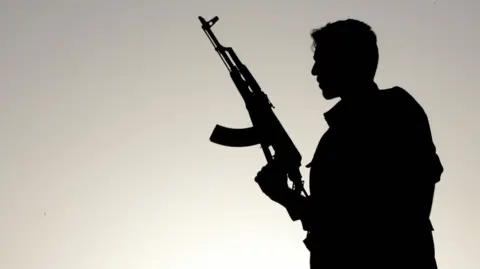 Mustafa Ozer / AFP via Getty Images
Mustafa Ozer / AFP via Getty ImagesWhen he bans Kurdistan Workers’ Parties (PKK) announced last month to dissolve and interrupt his decelation against Turkey, Leila hoped to be reunited soon with his son.
Three years ago, a former salesman left the Chamber to join the group – prescribes Turkey’s terrorist organization, United Kingdom and the EU – in the remote mountains, near Iraqi border with Iran.
In addition to two videos, he was sent, last in March, Leila has not seen him since.
“When I first heard about the announcement, I was very happy,” Leila says, whose name was changed because he was afraid of retaliation from the group.
“But as the weather has passed, nothing has changed.”
40 years of PKK in war in conflict in conflict in conflict killed more than 40,000 people, many civilians, and it is one of the world’s longest.
Some BBC families were indignantly condemned the PKK, while others proudly talked about how the family members died the fight and considered that this victim had a road for peace negotiations.
The PKK’s announcement that he will stop fingering was looking at the historic moment for Turkey, her Kurdish minority and neighboring countries in which the conflict rolled over.
But since then, no formal peace process with Turkey began and there is no official truce in place, with the killing reports, continuing on both sides.
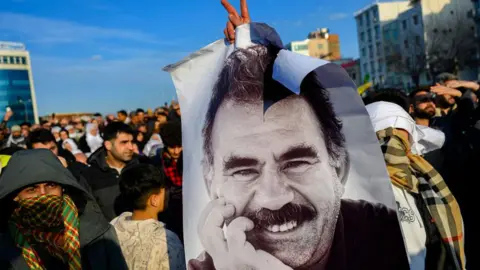 Getti images
Getti imagesInitially, the goal of the struggle for the independent Kurdish state in Turkey, PKK, crossed the focus, has been focused on the focus.
Leila, who lives in the Semi-Autonomous Region, who borders Turkey, said she didn’t even hear about PKK until her son, Iraqi-Kurd, in her twenties, came home that one day discussed the ideologies of the group one day.
She accuses a group of “brain” of her son, convincing him that she defended Ethnic Kurdish minorities in Turkey, Iraq, Syria and Iran. Kurds are the fourth largest ethnic group in the Middle East, but do not have a national state.
Leila says over time that her son began becoming more independent, making his bed, moving his clothes and dishwashes. He now believes that PKK prepared him for a difficult life that would soon live in the mountains.
He went on a day, returned home with three “comrades” to tell his mother to go to the mountains to start six months of training.
He says she repeatedly tried to distract him to join the PKK, but she was determined to leave.
“He was so determined. Negotiating with him would not be beneficial.”
Since then, Leila says she regularly visited Mountains Candiles in hopes of seeing her son, but she never saw him.
“If just let me see him once a year, I’d be happy,” she says.
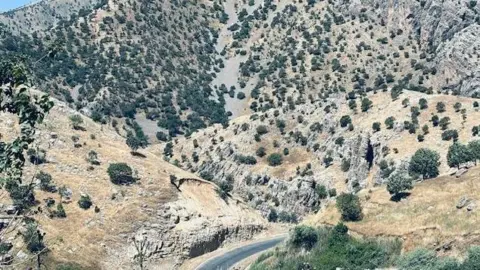
The BBC traveled to the mountains of the candies, approved a rare approach to the PKK to be recorded there.
Mountains, which are rarely populated and known for their natural beauty, help protects fear against PKK fighters from Turkish air strikes.
The journey took hours of narrow tight, bug roads, in an area where there are few signs of the population, except for the fist of farmers and shepherds.
As the BBC approached the PKK checkpoint, we saw large pictures of the group leader and the founder of Abdullah Ocalan – in solitary confinement in solitary confinement – shown through the mountains. But when the BBC reached the checkpoint, PKK denied us entry.
We later told us the PKK authorities that talks with the group and did not want the media attention.
They did not say what the talks, although the Iraqi Foreign Minister Fuad Mohammed Hussein said the talks about the BBC will be distinguished with the PKK, Turkish, Iraq and the Kurdistan Regional Government of how the group weapons will be submitted.
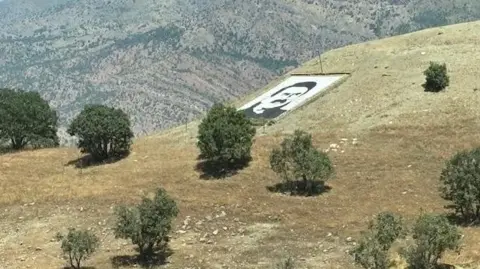
Disarmament ‘is not up for discussion’
So far, the conditions of possible peace agreements between Turkey and PKK are unknown.
The PKK said in a written statement that he was honestly and seriously in the process to insist on his leader, olative, must be free.
“The ball is now in the Turkish court. The peace process cannot be developed on the basis of unilateral steps,” says Zagreb Hiva, a spokesman to Kurdistan, Union KCK, an umbrella group of regional Kurdish organizations.
But in a possible sign of obstacle, a high local commander, which part of the second line of management within the Iraq, told the BBC in a written statement that disarmament “is not for discussion”.
She is still suspicious of Turkey’s intentions, adds that “when we deal with the reasons of armed conflict, the weapon will not be beneficial for both sides.”
Turkish President Recep Pristina’s readiness of Taiiip Erdogan to bring conflict with PKK, some interpreted as an offer to attract Kurdish support for a new constitution to reduce their 22nd rule to expand their 22 years.
He described the PKK’s decision to dissolve as an important step towards “our goal of Turkey without terrorism”.
Writing on KS, the Turkish president said that the new era would begin after the “elimination of terror and violence”.
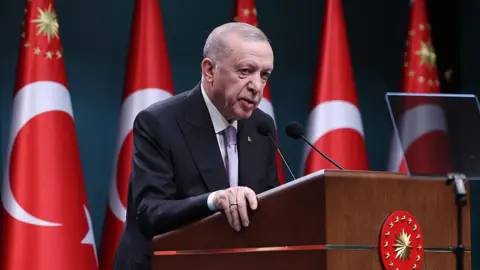 Getti images
Getti imagesFor some families whose loved ones are killed for PKK, the idea is that the conflict soon ends indignantly sweet.
Coffee takor was 21 when he was killed two years ago. His sister, Rondek, who lives in the Iraqi Kurdish city of Sulaimania, last seen in Mount Kandil in 2019. years.
Speaking from the family house, where coffee stolen the walls of the living room, Rondek says that the death of her brother changed his family’s life. “I always dream of him,” she says with the narrow eyes.
Rondek, who in the twenties, still remembers the last conversation they had together.
“I asked him if he wanted to come home with him and he said he was” never “. He even asked me to join him in the mountains,” she said.
For Rondek and her family, which are pro-PKK, a group of separations would be a moment “pride and pain, especially after our huge loss.”
She believes that “These are the victims we have made and the martyrs we lost, who race the way for leaders to talk peace”.
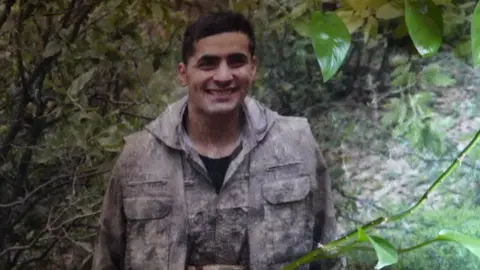
What happens next is uncertain.
There are questions about what would happen with thousands of Turkish PKK fighters and whether they will be allowed to reintegrate into Turkish society.
Turkish officials have yet to say whether these fighters will be treated as criminals and face criminal prosecution. But reports on the Turkish media have proposed fighters who have committed crimes in Turkey could be returned without fear of prosecution, although PKK leaders could be forced into the pursuit of other countries or must remain in Iraq.
It is also unclear what group dissolves would mean to other Kurdish groups, especially in Northeastern Syria, which Turkey considers it outside the shooting of PKK.
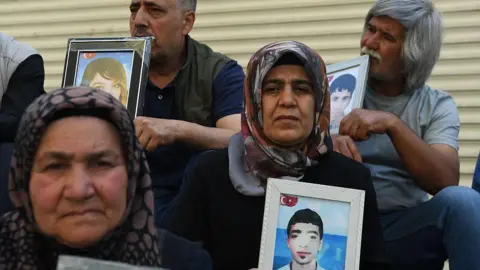 Getti images
Getti imagesDuring the Syrian Civil War, Turkish forces and Syrian struggle in Turkinia have launched the offensive to capture the border areas held by the Syrian Kurdish militia called folk protective units (IPG).
IPG is dominated by the Alliance of Kurdish and Arab militia called Syrian democratic forces that took the Islamic state groups from a quarter of Syria with the help of a multinational coalition that leads to American.
IPG says it is a special entity from PKK, but Turkey rejects it and prescribes it as a terrorist organization.
Erdogan said the PKK decision to dissolve that “covering all expansions of the organization in northern Iraq, Syria and Europe”. The SDF commander Mazloum Abdi said the decision of the PKK will “pave the path of a new political and peaceful process in the region.”
However, he also said that the PKK disarmament does not apply to SDF, which signed a separate offer for merging with Syrian armed forces in December.
In Iran, a group of Pishak, which is also part of the KCK, said BBC Turkish to support the “new process” in Turkey, but not planning to disarm or dissolve himself.
The PJEK is a terrorist organization in Turkey and Iran. There was a de facto truce between the group and the Iranian government since 2011. Years.
Turkey says Pjar Iranian Hand PKK, but the Kurdish groups denies this.
‘This town didn’t bring me anything but the pain’
For mothers like Leila, all complexity of politics and intricate balance of military forces through the region are irrelevant. What she cares is that she has her son again with her.
“He will return home when he gets tired of sharp life in the mountains, at some point he will realize that it can no longer be taken.”
If this happens, Leila plans to leave his home town in which her son recruited PKK.
“This city didn’t bring me anything but pain.”
